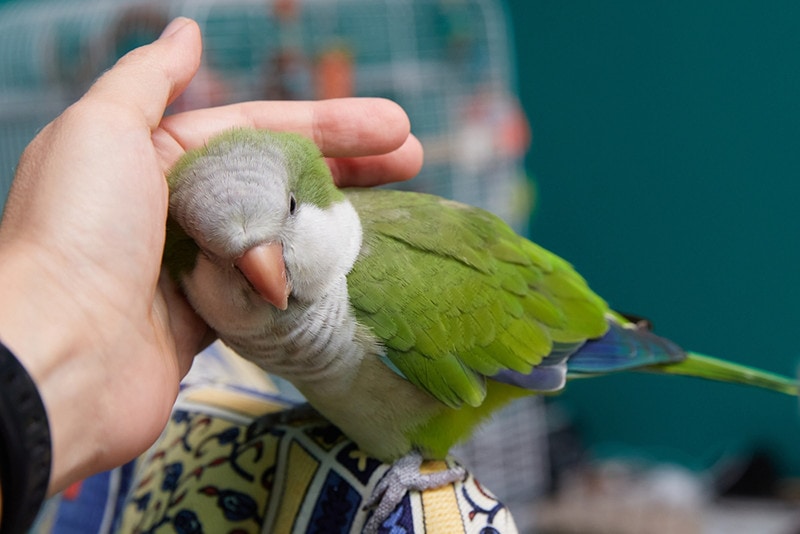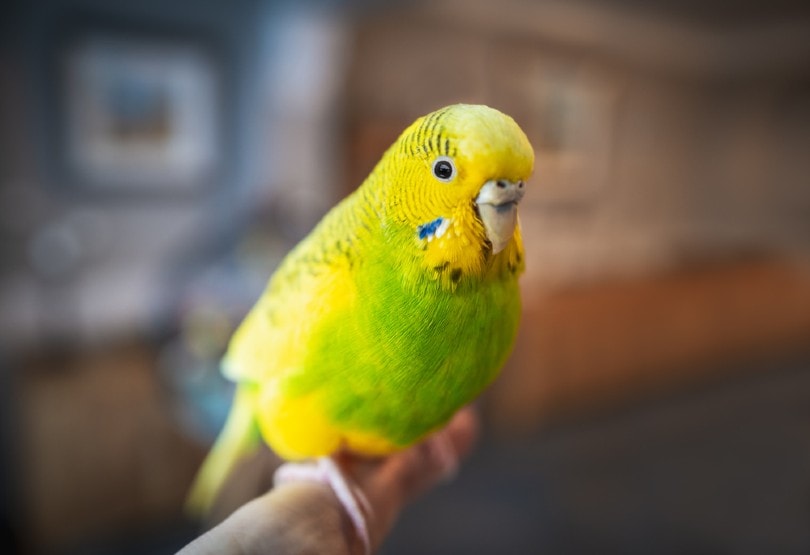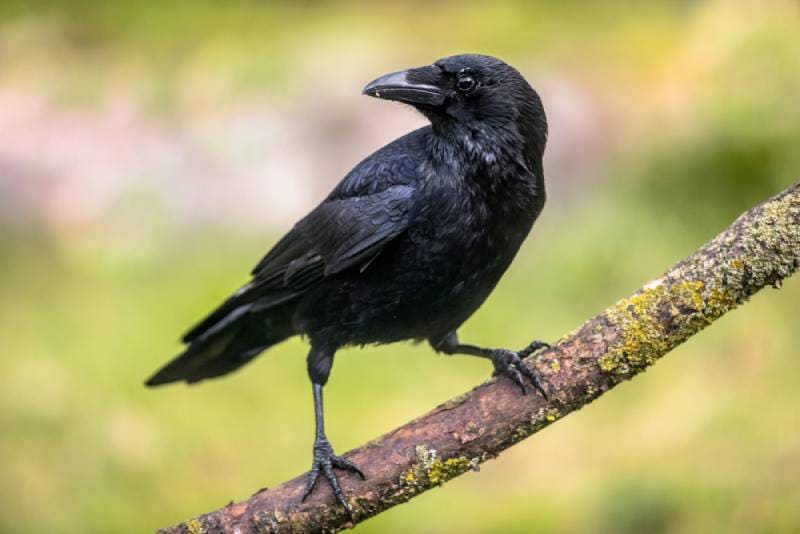How Do Parakeets Sleep? Vet-Approved Facts & Explanation
By Jessica Kim
Updated on

Click to Skip Ahead
Parakeets share similar sleeping habits as humans. They naturally sleep during the night and are active during the day. They’ll usually perch in a safe area when they’re ready to go to bed. You can tell that a parakeet is sleeping when their eyes are closed, their head is tucked, and they’re standing on one leg. Sleep is extremely important to parakeets, as sleep can affect their health, mood, and cognition. So, it’s important to recognize the signs of peaceful sleep and know how you can help them get good rest.

A Parakeet’s Sleeping Habits
When parakeets are sleeping, their eyes will be closed and they usually have their head tucked into their neck. They often look like they have their feathers fluffed up. Parakeets will often sleep with one leg up because this helps them to prevent heat loss.
How Long Do Parakeets Sleep?
Parakeets are diurnal birds that can sleep anywhere between 9–12 hours a night. A happy and healthy parakeet will usually stick to a routine and sleep around the same time each night. They’ll be able to sleep through the night without any interruptions in their sleep. Parakeets that live in pairs or groups often have matched sleeping cycles and will naturally learn to fall asleep and wake up at around the same time.

Why Is My Parakeet Sleeping a Lot?
Birds that sleep a lot may be sick. So, if you notice that your parakeet is sleeping more than usual, at unusual times, or past 12 hours a day, it’s time to take them to the veterinarian. Try to look for other signs of sickness, such as half-closed eyes, discharge or wetness around the nose, or more liquid droppings. Changes in behavior or personality also often indicate sickness.
How to Help Your Parakeet Get Good Sleep
It’s important to establish a good bedtime routine and quiet sleeping space for your parakeet. A healthy daily routine will impact your parakeet’s bedtime routine.
1. Help Them Burn Off Energy
Make sure to spend plenty of time playing with your parakeet and providing ample amounts of exercise and mentally stimulating activities for them throughout the day. Bored parakeets can end up with a lot of pent-up energy and find it more difficult to sleep consistently.

2. Keep Them in a Quiet and Warm Part of Your Home
Your parakeet’s enclosure should be in a quiet part of your home. Their sleep can be disturbed by snoring and other noises, so a bedroom may not always be the best option for parakeet enclosures. If your home makes some noise, like floorboards creaking, you can try playing some quiet white noise while your parakeets sleep to help fade out some noises.
When choosing a room for their enclosure, make sure to keep them in an area away from any drafts and in a room that can maintain a consistent warm temperature between 70 and 80 degrees Fahrenheit. You can often tell that your parakeet’s too cold if they keep their feathers fluffed during the day, as this can be a sign that they’re trying to stay warm.
3. Consider a Cage Cover or Hut
Parakeets don’t always need their enclosures to be covered at night. Some parakeets may not like complete darkness. So, if you choose to get them a cage cover, be extra mindful of any signs of distress. You may also just need to cover their cage partially.
An alternative to cage covers is huts. You can install a hut in your parakeet’s enclosure, but there’s no guarantee that your parakeet will use it. Some will like having a smaller, cozy space to sleep in, while others won’t enjoy it. Huts aren’t a necessity for parakeets, so if your parakeet doesn’t seem to like them, there’s no need to try so hard to get them to go inside.

Conclusion
A happy and healthy parakeet will be social and playful throughout the day and be able to sleep for 9–12 hours straight during the night. They’ll sleep with their eyes closed and usually have their heads tucked and one leg raised. If you notice that your parakeet isn’t sleeping through the night or is sleeping too much, make sure to schedule an appointment with your veterinarian to determine what’s causing these sleep issues. Getting your parakeet back on a normal sleep schedule will ultimately benefit their physical health, mood, and daily functioning.
See Also:
- How Often Do Parakeets Poop? Vet-Approved Facts & Explanation
- 8 DIY Parakeet Toys You Can Make Today (With Videos)
Featured Image Credit: Felix Mizioznikov, Shutterstock












